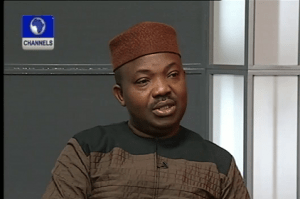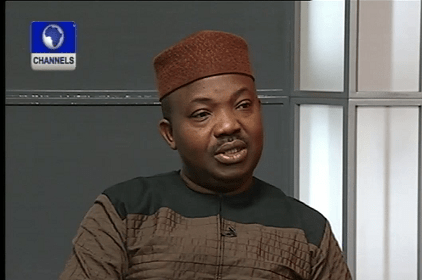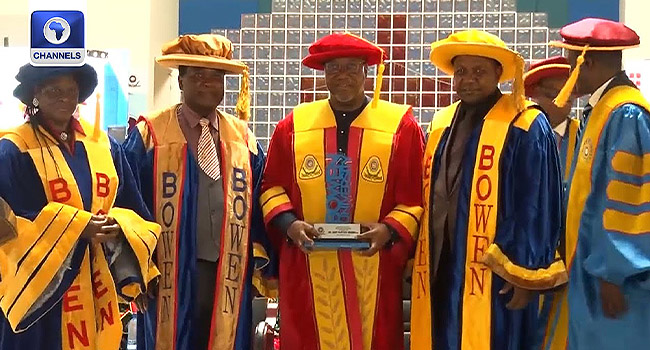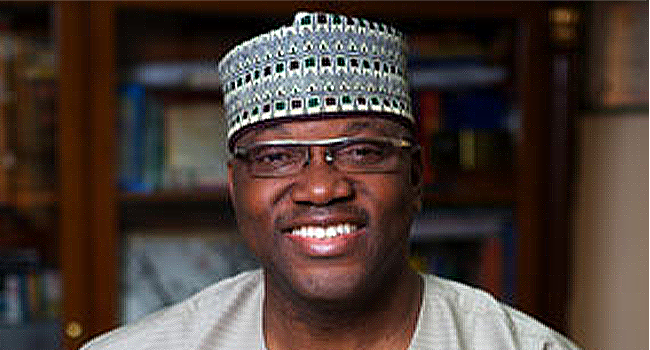
The recommendations will only make the expected impact if the nation will run with it, he said.
Mr Odumakin, who was on Channels Television’s Sunrise Daily on Monday, said that the next meeting of the conference is to ensure that all the recommendations reached would reflect in the report.
“As at the time we adjourned, plenary had ended. What we go for on August 11 is to look at the report to ensure that all the T’s and I’s are dotted. No more the debate, at this point is to ensure that the reports reflects the deliberation.”
The one time spokesperson for former political party, Congress For Progressive Change, emphasised, however, that there would be debate on whether the reports reflected the deliberations. He said that the delegates would also look at the gray areas and correct them.
He said that the 2014 national conference had looked in-depth into the issues of Nigeria than other conferences in the history of the nation.
“After formal deliberations, we passed over 600 resolutions in this conference and we touched many issues that the 1988, 1994 and 2005 conferences did not touch, for instance the structure of this country.
“For the first time we are able to take local government off the exclusive list of the federal constitution to make it residual. We were also able to create state police as well,”Mr Odunmakin said.
He further, revealed that the delegates removed many items from the exclusive list of the Federal Government such as aviation, ports, federal highways within the states, mines, and the military clause to mention a few.
Mr Odumakin said that Presidential System of Government was not modified to ensure that the cost of governance was cut down.
Afraid Of Change
He, however, edxplained that the conference limited some items in the Presidential System of Government that they considered as wasteful
“We introduced things that are alien to the Presidential System of Government such as the President and ministers to go to the parliament and defend their account of stewardship.”
In his opinion, the report should not be left in the hands of the National Assembly if any meaningful progress could be derived from it, suggesting that it should be put up for a referendum.
“If the report goes to the National Assembly, it is dead as the members are afraid of change and will not be willingly dispose to change,” he stressed.
According to him, the Independent National Electoral Commission are backed by the 2010 electoral act to conduct a referendum in pursuant of the 1999 constitution provisions or any other law or Act of the National Assembly.
“Perhaps, if there is a need of an Act of National Assembly, when a referendum is to be conducted, the President can ask them to pass an Act for the referendum and it goes to the people of Nigeria who will decide that this is what they want.
“The old National Assembly will have to promulgate a new constitution based on the people’s desire.”
He revealed that the conference altered the revenue allocation formula, saying that more money should go to the states.
“As against the present 52% controlled by the Federal government (FG), we are saying that the FG should take 42% and more resources should go to the states.
“The fiscal module of the country is not sustainable as oil is the main stay of the economy. If Nigeria stops selling oil, Lagos will be the only state in the country that will be able to pay the salary of its staff.
“Looking at the 2012 figures of IGI in all the states, Lagos State generated 219 billion Naira with a wage bill of 75 billion Naira which means it can pay its salary 50 times over unlike other states that will not be able to pay the salaries of the workers if there is no oil,” he explained.
He said the rationale behind creating new states was the quest for self-determination and more importantly, the fact that every state in the geo-political zone in Nigeria has abundant deposit of natural resources, hence the rationale behind the states creation.
He also revealed that the conference decided to put five per cent of the nation’s budget over a period, to explore the resources in every state, a fund that would enable most states explore the natural resources in the state.
Mr Odunmakin was optimistic that all the recommendations in the conference would not be pushed aside by politicians who are not favoured by the resolutions, as the people of Nigeria would have the final say through referendum.
On issues around politics, Mr Odunmakin was of the view that Nigeria needed a third party, which would not necessarily be a political party, but comprising of patriots and statesmen that would look beyond all the discrepancies in the polity.
“The party I am talking about is a party of patriots that are not necessarily interested in political office but are focused on righting the wrongs of the polity.”
On the derivation principle and why the conference decided to forward the issue to the presidency, Mr Odunmakin said there were controversies in the conference on the derivation issues, as some delegates wanted the five per cent intervention fund for insurgency in the north alone. The development led to the decision of the conference to forward the issue to the President to decide what the derivation will be.
He further suggested that the country should move to resource control until states can start generating revenue for themselves.
On whether the resources in the offshore belongs to the Federal Government, he insisted that the FG owns no resources and the that resources belong to the federating units as Nigeria was a Federal State.
“That is why there are talks of derivation and resource control.”
On the fear that the removal of immunity will open the president and governors to all sorts of litigations, Mr Odunmakin is of the view that those elected to political offices were called to serve and should not contest for political offices if they could not stand the heat.
He insisted that the removal of immunity would put a stop to impunity and enhance the enforcement of the corruption law.
Mr Odumakin was optimistic that the recommendations from the conference would go for a referendum despite fears in some quarters that there was no law backing it.




